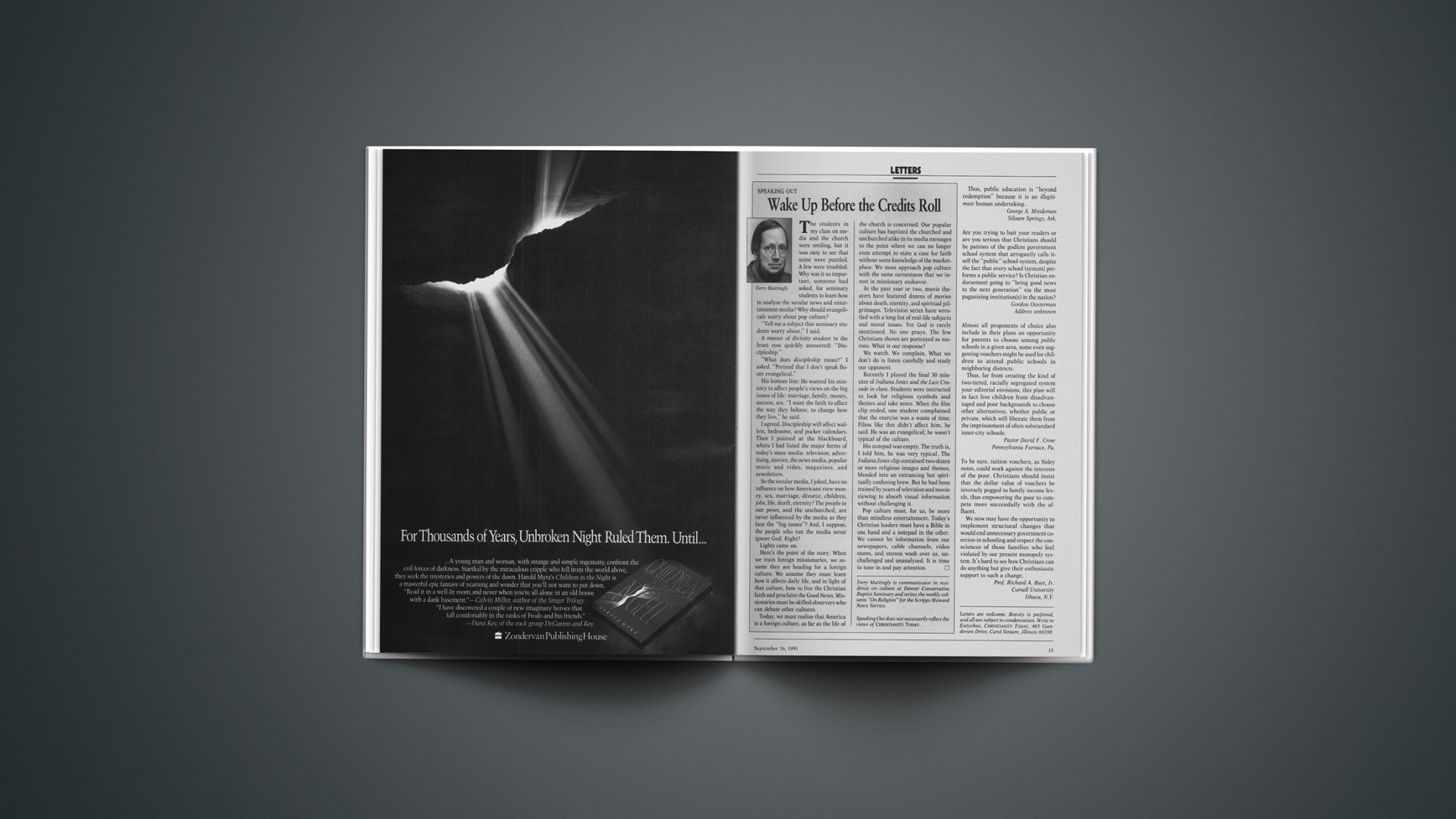The students in my class on media and the church were smiling, but it was easy to see that some were puzzled. A few were troubled. Why was it so important, someone had asked, for seminary students to learn how to analyze the secular news and entertainment media? Why should evangelicals worry about pop culture?
“Tell me a subject that seminary students worry about,” I said.
A master of divinity student in the front row quickly answered: “Discipleship.”
“What does discipleship mean?” I asked. “Pretend that I don’t speak fluent evangelical.”
His bottom line: He wanted his ministry to affect people’s views on the big issues of life: marriage, family, money, success, sex. “I want the faith to affect the way they behave, to change how they live,” he said.
I agreed. Discipleship will affect wallets, bedrooms, and pocket calendars. Then I pointed at the blackboard, where I had listed the major forms of today’s mass media: television, advertising, movies, the news media, popular music and video, magazines, and newsletters.
So the secular media, I joked, have no influence on how Americans view money, sex, marriage, divorce, children, jobs, life, death, eternity? The people in our pews, and the unchurched, are never influenced by the media as they face the “big issues”? And, I suppose, the people who run the media never ignore God. Right?
Lights came on.
Here’s the point of the story: When we train foreign missionaries, we assume they are heading for a foreign culture. We assume they must learn how it affects daily life, and in light of that culture, how to live the Christian faith and proclaim the Good News. Missionaries must be skilled observers who can debate other cultures.
Today, we must realize that America is a foreign culture, as far as the life of the church is concerned. Our popular culture has baptized the churched and unchurched alike in its media messages to the point where we can no longer even attempt to state a case for faith without some knowledge of the marketplace. We must approach pop culture with the same earnestness that we invest in missionary endeavor.
In the past year or two, movie theaters have featured dozens of movies about death, eternity, and spiritual pilgrimages. Television series have wrestled with a long list of real-life subjects and moral issues. Yet God is rarely mentioned. No one prays. The few Christians shown are portrayed as morons. What is our response?
We watch. We complain. What we don’t do is listen carefully and study our opponent.
Recently I played the final 30 minutes of Indiana Jones and the Last Crusade in class. Students were instructed to look for religious symbols and themes and take notes. When the film clip ended, one student complained that the exercise was a waste of time. Films like this didn’t affect him, he said. He was an evangelical; he wasn’t typical of the culture.
His notepad was empty. The truth is, I told him, he was very typical. The Indiana Jones clip contained two-dozen or more religious images and themes, blended into an entrancing but spiritually confusing brew. But he had been trained by years of television and movie viewing to absorb visual information without challenging it.
Pop culture must, for us, be more than mindless entertainment. Today’s Christian leaders must have a Bible in one hand and a notepad in the other. We cannot let information from our newspapers, cable channels, video stores, and stereos wash over us, unchallenged and unanalyzed. It is time to tune in and pay attention.
Terry Mattingly is communicator in residence on culture at Denver Conservative Baptist Seminary and writes the weekly column “On Religion” for the Scripps Howard News Service.
Speaking Out does not necessarily reflect the views ofCHRISTIANITY TODAY.










